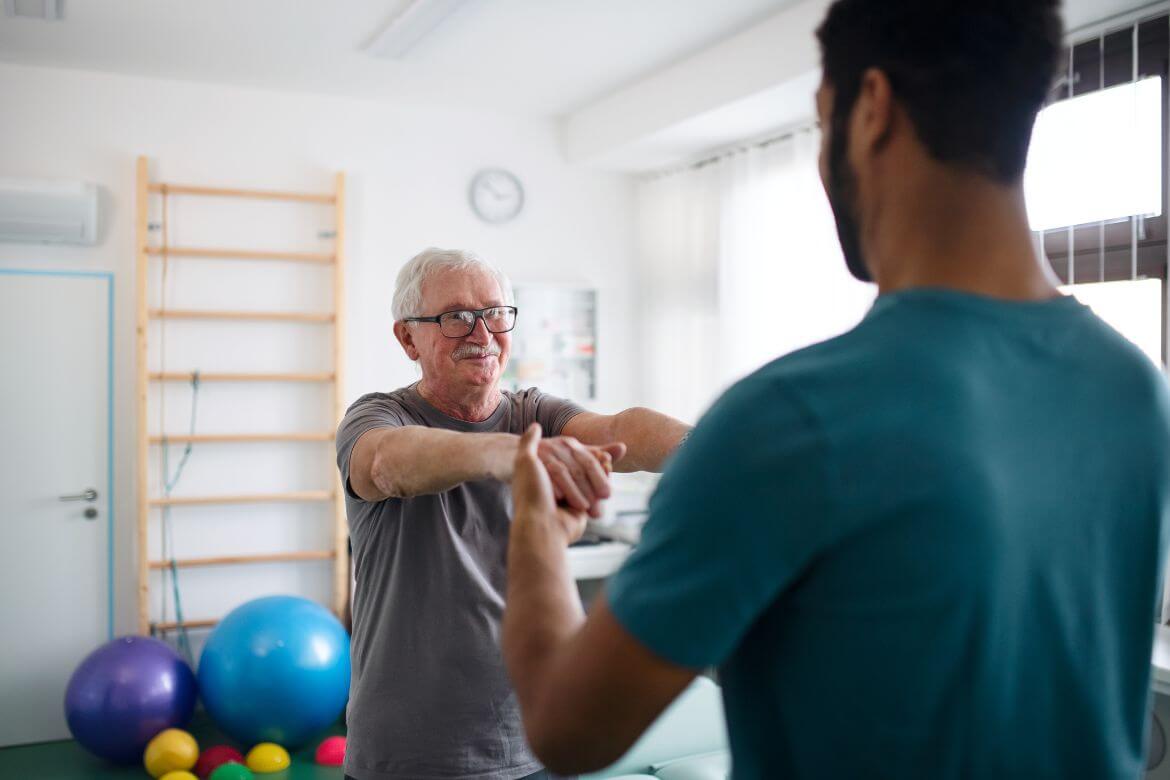
A stroke is a life-altering event that can lead to significant physical, cognitive, and emotional challenges. Neurorehabilitation plays a crucial role in stroke survivors’ recovery, helping them regain lost skills, adapt to new circumstances, and improve their quality of life. In this blog, we will explore the importance of neurorehabilitation in stroke recovery, the components involved, and the benefits it offers to individuals navigating this complex journey.
Understanding Stroke and Its Impact
A stroke occurs when blood flow to a part of the brain is interrupted, resulting in the death of brain cells. There are two main types of strokes:
- Ischemic Stroke: Caused by a blockage in a blood vessel supplying blood to the brain.
- Hemorrhagic Stroke: Caused by bleeding in or around the brain.
The effects of a stroke can vary widely depending on the area of the brain affected and the extent of the damage. Common outcomes include:
- Physical Impairments: Weakness or paralysis, difficulty walking, and challenges with coordination and balance.
- Cognitive Impairments: Memory loss, difficulty concentrating, and challenges with problem-solving.
- Emotional Challenges: Anxiety, depression, and changes in personality.
The Importance of Neuro Rehabilitation
Neuro rehabilitation is essential for stroke survivors for several reasons:
1. Promoting Recovery of Function
Neuro rehabilitation focuses on helping stroke survivors regain lost abilities. Through targeted therapies, patients can work on the following:
- Motor Skills: Regaining strength, coordination, and control of their muscles.
- Speech and Language: Improving communication skills and addressing difficulties with swallowing.
- Cognitive Abilities: Enhancing memory, attention, and problem-solving skills.
2. Maximizing Neuroplasticity
The brain has a remarkable ability to reorganize itself, a phenomenon known as neuroplasticity. Neuro rehabilitation takes advantage of this ability by providing stimulating and challenging activities that encourage the brain to form new connections and pathways. This process is essential for recovery and can lead to improvements in various functions.
3. Supporting Emotional and Psychological Well-Being
Recovering from a stroke can be emotionally challenging. Neuro rehabilitation addresses these aspects by providing psychological support and counseling. Therapists help patients cope with feelings of frustration, anxiety, or depression, fostering resilience and motivation throughout the recovery process.
4. Enhancing Independence and Quality of Life
The ultimate goal of neuro rehabilitation is to help stroke survivors regain their independence. By focusing on functional skills and daily living activities, rehabilitation empowers individuals to participate fully. This independence greatly enhances their overall quality of life and encourages social engagement.
Components of Neuro Rehabilitation for Stroke Survivors
Neuro rehabilitation typically involves a multidisciplinary approach, incorporating various therapies tailored to the individual’s needs. Here are the main components:
1. Physical Therapy
Physical therapy is crucial for improving mobility, strength, and coordination. Therapists design personalized exercise programs that may include:
- Gait Training: Helping patients improve their walking patterns.
- Strengthening Exercises: Building muscle strength to support functional movements.
- Balance Training: Enhancing stability to reduce the risk of falls.
2. Occupational Therapy
Occupational therapy focuses on helping stroke survivors regain independence in daily activities. This may involve:
- Adaptive Techniques: Teaching patients how to modify tasks for easier completion.
- Functional Skills Training: Practicing skills needed for self-care, household tasks, and leisure activities.
- Assistive Devices: Recommending tools to aid independence, such as grab bars or specialized utensils.
3. Speech and Language Therapy
Speech-language therapy is essential for stroke survivors who experience difficulties with communication or swallowing. This therapy may include:
- Communication Exercises: Helping patients improve their speech clarity and language skills.
- Swallowing Therapy: Teaching safe swallowing techniques to prevent choking.
4. Cognitive Rehabilitation
Cognitive rehabilitation focuses on enhancing memory, attention, and problem-solving skills. This may involve:
- Memory Exercises: Practicing recall and recognition tasks.
- Attention Training: Engaging in activities that challenge focus and concentration.
- Problem-Solving Activities: Working on tasks that require critical thinking and reasoning.
5. Psychological Support
Addressing the emotional and psychological aspects of recovery is crucial. Therapists may provide:
- Counseling Services: Supporting patients in managing their emotional responses to stroke.
- Group Therapy: Facilitating support groups for stroke survivors to share experiences and coping strategies.
The Stroke Rehabilitation Process
The process of neuro rehabilitation for stroke survivors typically involves several stages:
1. Initial Assessment
The rehabilitation journey begins with a comprehensive assessment of the patient’s medical history, physical abilities, cognitive functions, and emotional well-being. This assessment helps to create a tailored treatment plan.
2. Goal Setting
Rehabilitation teams work with patients to set realistic and achievable goals. These goals may focus on regaining specific skills, improving overall functioning, or enhancing emotional well-being.
3. Personalized Treatment Plan
Based on the assessment and goals, a personalized treatment plan is developed. This plan integrates various therapies to address the individual’s specific needs.
4. Ongoing Monitoring and Adjustments
Regular follow-ups and assessments allow the rehabilitation team to monitor progress and make necessary adjustments to the treatment plan. This flexibility ensures that the therapy remains effective and relevant.
5. Discharge Planning
As patients progress, the rehabilitation team prepares for discharge by providing resources and recommendations for ongoing support. This may include referrals to community resources or outpatient therapies.
If you’re seeking support for neuro rehabilitation in Pune, our specialists are here to help. Reach out to The Physio9 Clinic for personalized treatment options!
Conclusion
Neuro rehabilitation plays a vital role in the recovery process for stroke survivors. By promoting the restoration of lost skills, enhancing neuroplasticity, and providing emotional support, neuro rehabilitation helps individuals regain independence and improve their quality of life. The multidisciplinary approach, combining physical, occupational, speech, and cognitive therapies, ensures that each patient receives comprehensive care tailored to their unique needs.
If you or a loved one is navigating the challenges of stroke recovery, consider the importance of neuro rehabilitation in your journey toward healing and independence. A fulfilling life after a stroke is achievable with the right support and resources.







